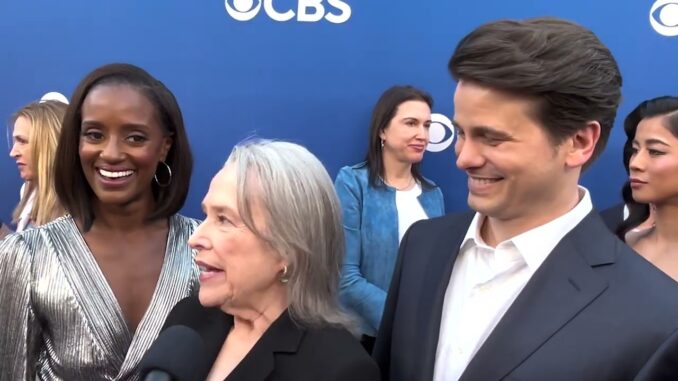
The Charged Air: How Skye P. Marshall and Jason Ritter’s On-Screen Tension Fuels Matlock Season 2
The alchemy of on-screen tension is a potent force, capable of transforming a mere storyline into an electrifying human drama. It’s the unspoken dialogue, the crackling current beneath the surface, the push-and-pull that breathes life into characters and keeps audiences riveted. In the much-anticipated second season of Matlock, this elusive magic is not just present, but poised to be the very engine of the series, fueled by the compelling, often contradictory dynamic between Skye P. Marshall as the formidable Matlock and Jason Ritter as her enigmatic, unpredictable counterpart.
Marshall’s reimagined Matlock is, by all accounts, a force of nature: sharp-witted, meticulously prepared, and possessing an unyielding moral compass. She embodies a gravitas that commands respect, a legal lioness whose courtroom demeanor is a masterclass in controlled power. Enter Jason Ritter, a performer renowned for his ability to infuse characters with a charming unpredictability, a vulnerability beneath a veneer of wit, and an almost chaotic brilliance. The very casting suggests a deliberate forging of opposites, a fertile ground for a tension that is far more nuanced than simple conflict.
Imagine their first scene in a bustling courthouse hallway, a visual metaphor for their inherent clash. Matlock, impeccably tailored, moving with purpose, her focus singular and unwavering. Ritter’s character, perhaps a disarmingly charismatic prosecutor or an unexpected, rogue investigator, might be leaning against a wall, a sly grin playing on his lips, or gesturing expansively, disrupting the quiet dignity Matlock radiates. Their initial interactions are likely to be a symphony of subtle discord: Matlock’s precise legal jargon met with Ritter’s more colloquial, perhaps even irreverent, interjections. Her steely gaze, designed to intimidate, might find itself deflected by his disarming charm, or worse, met with an equally challenging glint in his eye that suggests he sees right through her meticulously constructed façade.
This tension isn’t merely antagonistic; it’s the friction that sparks insight. In the courtroom, their differing approaches could be a magnificent dance of legal strategy. Matlock might meticulously build her case brick by brick, laying out facts with surgical precision, while Ritter’s character, perhaps as opposing counsel or a key witness, might deploy a sudden, intuitive leap, a rhetorical flourish, or an unexpected emotional appeal that threatens to derail her carefully constructed edifice. Yet, the brilliance lies in how these clashing styles, born of their individual philosophies, could paradoxically lead to the truth. The audience would be left to wonder: is his unpredictability a weakness, or a necessary disruptive force that reveals what Matlock’s structured mind might overlook? Is her rigidity a flaw, or the anchor that prevents his genius from spiraling into chaos?
Beyond the professional arena, the on-screen tension between Marshall and Ritter would undoubtedly spill into the personal, creating a compelling emotional subtext. It’s in the loaded silences, the shared glances that hold a thousand unspoken words, the moments where one unexpectedly defends the other, despite their usual sparring. Perhaps Matlock, guarded and fiercely independent, finds herself irritated by Ritter’s unsolicited advice, yet secretly recognizes its value. Or Ritter’s easygoing persona might crack to reveal a genuine concern for Matlock’s well-being, catching her off guard and revealing a shared humanity that transcends their professional rivalry. This nuanced interplay hints at a deeper, evolving relationship – not necessarily romantic, but undeniably profound, where two formidable individuals, initially at odds, slowly begin to acknowledge and even rely on each other’s unique strengths and vulnerabilities.
Ultimately, the on-screen tension generated by Skye P. Marshall and Jason Ritter is more than just a character beat; it’s narrative propulsion for Matlock Season 2. It forces both characters out of their comfort zones, challenging their established methods and beliefs. It drives plot points, creates unexpected alliances, and raises the stakes of every legal battle. It transforms a legal procedural into a compelling study of human connection, contradiction, and collaboration, ensuring that viewers tune in not just for the resolution of the case, but for the continued, captivating evolution of Matlock and her enigmatic foil. The air between them, charged and electric, promises to be the most compelling witness in the new season.
